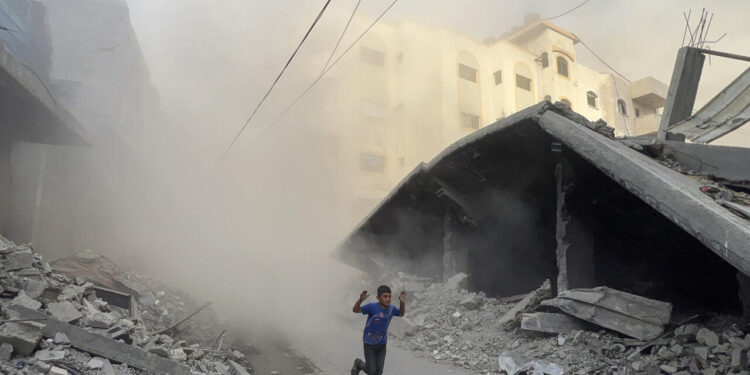As Israel begins offensive on Gaza City, an exhausted military may face a manpower problem
As the earliest stages of a massive assault on Gaza City take shape, Israel is calling up tens of thousands of reservists to take part in the impending military operation.
The takeover and occupation of the largest city in northern Gaza, which Israel’s Prime Minister Benjamin Netanyahu said was one of the last Hamas strongholds, will require the military to bring in 60,000 more reserve troops and extend the service of another 20,000.
Those plans have sparked growing condemnation both internationally and domestically over fears that the spiraling humanitarian and hunger crisis in Gaza will worsen – and that the lives of the remaining hostages will be further at risk from an expanded military operation.
The Israeli military is already on the outskirts of Gaza City, Israel Defense Forces (IDF) spokesman Brig. Gen. Effie Defrin said Wednesday, in what he described as the first steps of the larger operation.
An Israeli military official told CNN that there will be “several steps” before Israeli ground forces move into the city. It is partially encircled by Israeli troops, the official said, and some forces are already operating in the area of Zeitoun, west of the city center. The IDF has begun preparing for the city’s evacuation by sending in more tents for displaced Palestinians, but evacuation warnings have not yet been issued.
When Israel’s security cabinet first approved the takeover of Gaza City, Israeli officials estimated the plan could take five months or more. But on Wednesday, Netanyahu instructed the military to shorten the timeline.
After nearly two years of war, and with no end in sight amid the next major operation, Israel’s military chief warned of the added burden on the troops, many of whom have been called up multiple times to fight in Gaza. IDF Chief of Staff Lt. Gen. Eyal Zamir told the security cabinet earlier this month that the military faced attrition and burnout, but his concerns were dismissed as Netanyahu and his coalition partners pushed ahead with the new war plans.
A new survey from the Agam Labs at the Hebrew University of Jerusalem suggested that approximately 40% of soldiers were slightly or significantly less motivated to serve, while a little more than 13% were more motivated. The findings underscore the stark reality facing Israel’s military, which could face limits to its manpower, especially as polls have repeatedly shown an overwhelming majority of the country supports an end to the war.
















